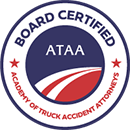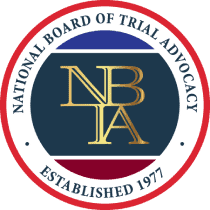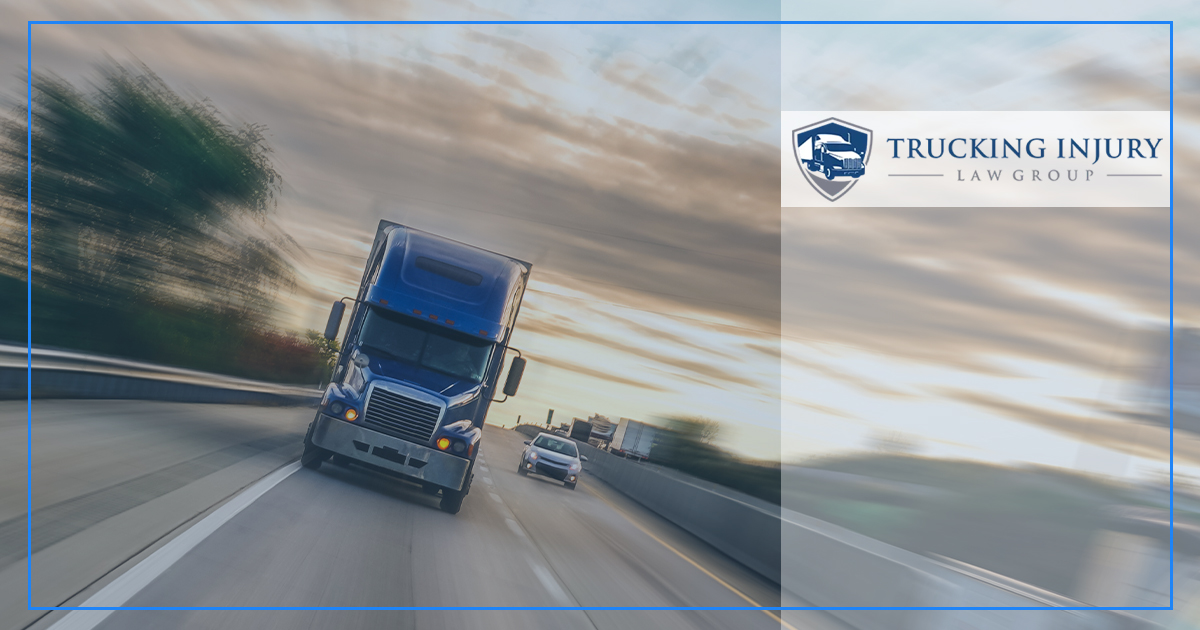Common Injuries Resulting From Trucking Accidents
Trucking accidents are often catastrophic events that can lead to severe injuries for all parties involved.
The Federal Motor Carrier Safety Administration reported nearly 500,000 large truck accidents in the US in 2021 alone, 110,000 of which included injuries.
These incidents not only cause physical harm but can also result in serious emotional and financial struggles for victims and their families.
If you’ve been involved in an accident with a truck in Washington, or anywhere in the Pacific Northwest, there are many steps to take following a truck crash. Taking these ensures both your immediate and long-term safety. You should also consider contacting an experienced truck collision attorney in Vancouver, WA.
Common Trucking Injuries
Some of the most common injuries resulting from trucking accidents include:
Head and Brain Injuries
Some of the most devastating injuries from trucking accidents involve head and brain damage.
These can range from minor concussions to traumatic brain injuries (TBIs) depending on the severity of the impact. Even with safety measures like helmets or airbags, the sheer force that’s involved in a crash with a commercial truck can cause significant, sometimes irreparable, damage.
Symptoms of head injuries might include headaches, dizziness, memory loss, vision or hearing problems, and in severe cases, long-term cognitive issues.
Spinal Cord Injuries
Because of the sudden impact and potential for vehicle rollovers, truck accidents often result in spinal cord injuries as well. These injuries can lead to partial or complete paralysis, affecting both mobility and everyday functioning.
The spinal cord is particularly at risk of damage in high-speed collisions or accidents where a truck collides with a smaller vehicle.
Neck and Back Injuries
Whiplash (a frequent injury in rear-end collisions) and other neck and back injuries are fairly common in truck accidents, especially for the occupants of smaller vehicles. The sudden force of an impact often causes the victim’s head and neck to jerk forward and backward suddenly and violently, which results in the straining or tearing of muscles and ligaments.
Back injuries like herniated discs or vertebral fractures happen as well and can result in chronic and severe pain and limited mobility. These types of injuries may require extensive medical treatment and long-term rehabilitation.
Bone Fractures and Crush Injuries
Given the immense size and weight of commercial trucks, it’s no surprise that bone fractures and crush injuries occur frequently in these accidents.
Victims may suffer broken bones in their limbs, ribs, or pelvis from the force of impact or from being pinned inside a crushed vehicle. These “crush injuries”, where body parts are trapped and compressed, can cause massive tissue damage, and nerve injury, and in extreme cases, require amputation of limbs.
Burns and Chemical Exposures
In accidents involving commercial trucks that carry hazardous materials, or leaks from fuel trucks, burns and chemical exposures can be serious risks.
An impact can trigger fires or explosions, causing severe burns to victims caught in or near wrecked vehicles. Toxic chemicals, smoke, or gases can be released during a collision, which can lead to respiratory damage, exterior burns, and long-term health problems.
Psychological and Emotional Trauma
Ongoing damage isn’t limited to just physical injuries, either. Truck accidents can have a profound psychological and emotional impact on victims and their families, too.
Post-traumatic stress disorder (PTSD), anxiety, and depression are common responses to traumatic events. Experiencing, or even just witnessing a severe accident can lead to serious emotional distress, which can affect a victim’s quality of life and necessitate psychological support and therapy to reach recovery.
Trucking Accidents
The National Safety Council (NSC) reports that nearly 6,000 large trucks are involved in a fatal crash each year. The most common types of these collisions include:
- Rear-End Collisions: This is when a truck hits the vehicle in front of it, often due to the truck’s inability to stop quickly because of its size and weight.
- Jackknife Accidents: Jackknife’s happen when the trailer of the truck swings out to the side at a 90-degree angle with the cab. This often happens with sudden braking or on slippery roads.
- Tire Blowouts: Sudden tire blowouts can cause a truck to swerve drastically and cause the driver to lose control.
- Rollovers: Because they have such a high center of gravity, trucks can tip over, particularly when taking sharp turns at high speeds, or in severe winds.
- Underride Accidents: This is when smaller vehicles slide under the rear or side of a truck during a collision. These accidents often result in severe injuries or fatalities.
- T-Bone Collisions: T-bone accidents happen when a truck crashes into the side of another vehicle, often at intersections.
- Head-On Collisions: Among the most dangerous and fatal of truck accidents, head-on collisions occur when a truck and another vehicle crash front end to front end. This often happens due to a loss of control, distraction, or driver fatigue.
Truck accidents can result in a wide range of injuries and long-term impacts on victims.
From head and brain injuries to spinal cord damage and emotional trauma, the consequences of these crashes often go far beyond physical damage to affect every aspect of a person’s life.
At Trucking Injury Law Group, our lawyers understand the nuances of truck accident laws, as well as the FMCSA regulations related to them. We also have the experience to effectively advocate for your rights and fair compensation.
Understanding the types of injuries that can occur is the first step toward implementing effective prevention strategies and supporting those affected by these tragic events.






